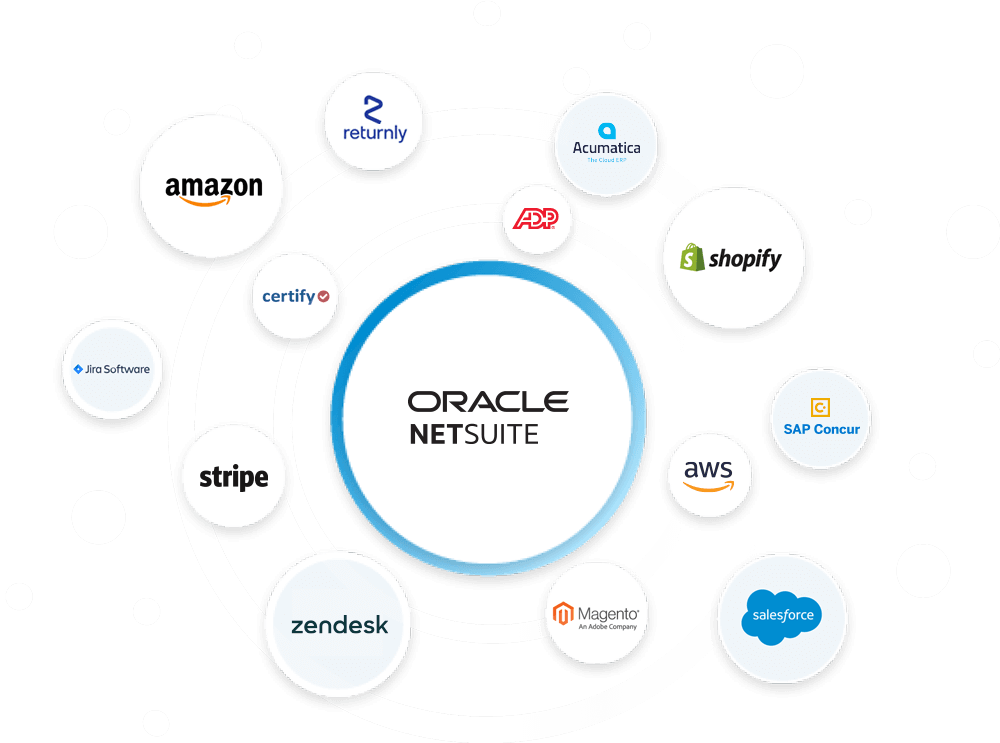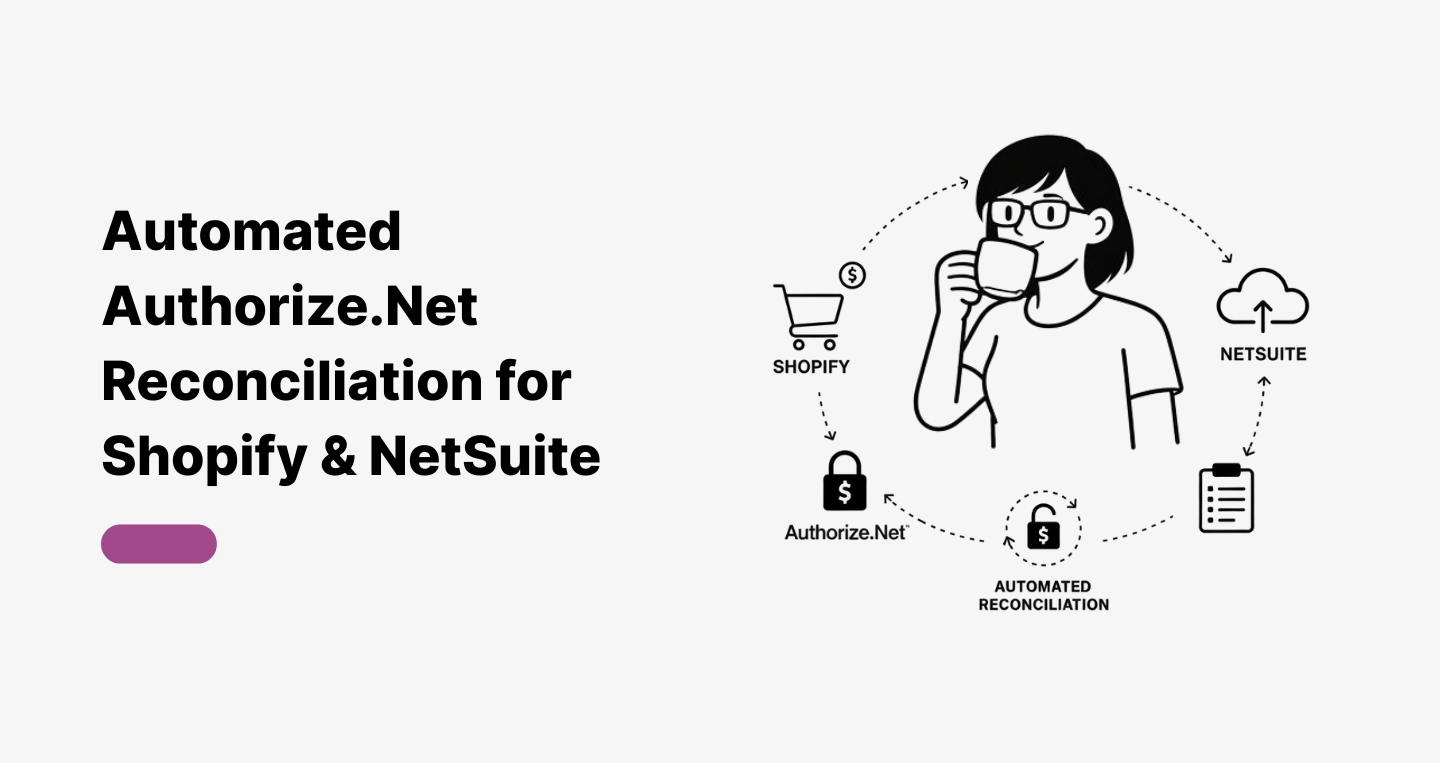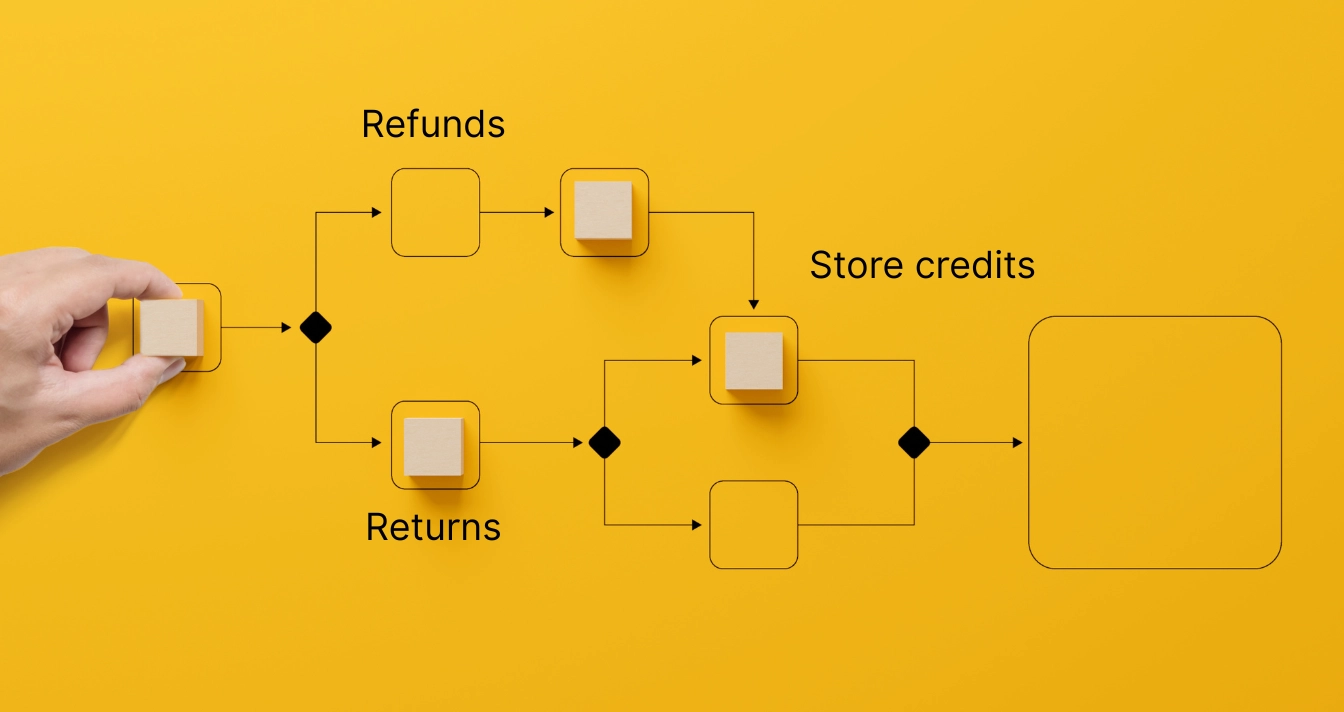The modern day eCommerce business needs to have way more than just a great front-end platform like Shopify or a solid ERP like NetSuite. These systems should never exist independently as integrating Shopify with NetSuite presents too many good rewards to pass on.
Real-time data sync, greater system scalability, cost savings can all become possible if you have chosen the best platform for the best Netsuite Shopify integration. But having an abundance of great middleware options can be both a blessing and a curse – the choice becomes really difficult.
That’s why, in this article, we’ve decided to evaluate the seven most capable platforms for Shopify NetSuite integration as well as dive deep into both the benefits and the challenges of the process.
Key Benefits of Integration Your Shopify Store with NetSuite
Eliminating Manual Processes
Normally you must manually update your order details, inventory levels, and customer records, which can lead to many potential errors. In turn, these mistakes (overselling due to outdated stock data or incorrect financial reporting) can harm customer trust.
And with NetSuite Shopify integration, you eliminate the risk of duplicate entries or human oversight. When an order is placed in Shopify, the system can immediately trigger updates in NetSuite’s financial and inventory modules, making sure that stock levels are accurate.
Centralizing Your Data
Integration creates a synchronized environment where both platforms act as extensions of the same data source. Shopify specializes in managing storefront-level details, such as product listings, promotions, and customer interactions. NetSuite, on the other hand, excels at handling back-office operations like procurement, accounting, and logistics.
Improving Customer Experience
Modern day customers expect swift order processing, accurate delivery timelines, and real-time updates. Integration helps meet these expectations – you will enjoy features like automated email updates for shipping confirmations or low-stock alerts for popular items.
Moreover, integration minimizes delays caused by miscommunication between teams handling different aspects of the customer journey. So when your customer places an order on Shopify, NetSuite can automatically handle invoicing, generate shipping labels, and trigger warehouse picklists.
Securing Scalability for Growth
As you expand, managing multiple storefronts, warehouses, or markets becomes increasingly complex. Luckily, Shopify NetSuite integration scales to support such growth.
Shopify Plus caters to high-growth eCommerce brands, and pairing it with NetSuite will mean that your backend operations, such as tax compliance, will keep up.
Additionally, integrated platforms provide flexibility for handling seasonal sales surges or launching new product lines.
Enhancing Financial Accuracy
Integration eliminates any data mismatches by making sure of every transaction in Shopify being recorded in NetSuite’s accounting. This means timely reconciliation of payments, refunds, and expenses, which are all crucial for maintaining financial health.
One of the further benefits of Shopify NetSuite integration is you can generate very complex reports. They can combine your sales, expenses, and operational data to provide a clearer picture of profitability. Tax filings, audits, and compliance reporting also become more efficient when all financial data resides in a single source of truth.
Why Integrating Shopify with NetSuite Can Be a Complex Task
Reconciling Data Models
When you connect Shopify with NetSuite, it’s always a challenge to reconcile how the platforms structure their data. Shopify focuses on eCommerce-centric entities such as products, orders, and customers, whereas NetSuite uses broader ERP constructs like items, transactions, and contacts.
For example, Shopify’s variant-based product listings may not map directly to NetSuite’s item records. Additionally, fields like SKU codes or shipping options may need customized mappings to align with NetSuite’s backend logic.
Custom Workflow Needs
Every business has unique operational needs that may not be fully addressed by off-the-shelf integrations. For instance, a retailer using Shopify might offer bundled product discounts or custom delivery options that require specific logic.
Such edge cases are normally resolved through customization, however, this introduces a lot of complexity. You then must define all workflows, validate them through testing, and monitor for anomalies in live environments.
API Limitations and Performance Bottlenecks
Both Shopify and NetSuite impose API rate limits to prevent system overloads, which can complicate integration for businesses with high transaction volumes. For instance, syncing thousands of orders during a peak sale event could exceed API thresholds, resulting in delays or partial updates.
That’s why integration platforms must include mechanisms to queue and throttle API calls. More advanced solutions may also include retry logic or batch processing to handle large-scale operations effectively.
Ensuring Data Security and Compliance
Integration involves exchanging sensitive data, such as customer details, financial records, and inventory counts, across platforms. Failure to secure this data exposes businesses to breaches, non-compliance fines, and reputational damage.
You must also audit your integrations periodically to identify and fix vulnerabilities before they become exploitable.
Cost Management
7 Best Shopify NetSuite Integration Platforms in 2024
Celigo
Celigo remains one of the most popular platforms for Shopify NetSuite integration due to its prebuilt templates and extensive customization options. Its main strength lies in its adaptability to both standard and highly customized workflows.
Key Technical Features:
- Integration Customization: Users can adjust workflows, field mappings, and error-handling mechanisms through an intuitive interface.
- Scalability: Handles high transaction volumes with minimal latency.
- Prebuilt Flows: Includes ready-to-use connections for orders, inventory, and customer data.
Pricing: average annual estimate by Vendr is $16,503.
Celigo is especially useful for businesses requiring a balance between simplicity and depth. It supports rapid deployment while allowing advanced users to configure nuanced workflows.
Jitterbit
Another great NetSuite Shopify connector, Jitterbit offers an enterprise-grade platform that excels in handling complex data transformations. Its capabilities make it ideal for companies with unique data requirements or heavy customization in Shopify and NetSuite.
Key Technical Features:
- Advanced Mapping Tools: Jitterbit’s mapping interface enables precise field matching and transformations.
- API Management: Extends functionality by creating custom APIs for unique integration needs.
- Speed Optimization: Leverages high-speed data synchronization for large datasets.
Pricing: average annual estimate by Vendr is $19,582.
For technically demanding projects, Jitterbit is a powerful option that caters to businesses with skilled technical teams.
FarApp
FarApp specializes in retail and wholesale integrations, making it well-suited for Shopify stores with diverse sales channels or inventory management complexities.
Key Technical Features:
- Multi-Channel Support: FarApp integrates Shopify with additional marketplaces, ensuring unified inventory tracking across platforms.
- Dynamic Pricing Rules: Facilitates complex pricing models, such as tiered discounts or custom B2B pricing.
- Robust Order Management: Automates workflows for order processing, shipping updates, and returns.
Pricing: publicly undisclosed – contact sales team for a custom quote.
FarApp’s focus on retail intricacies makes it a go-to for businesses with multi-channel strategies or detailed pricing requirements.
Boomi
Boomi, a Dell Technologies product, provides a cloud-native integration platform tailored for businesses aiming for robust data connectivity without heavy technical involvement.
Key Technical Features:
- Drag-and-Drop Builder: Simplifies workflow creation and reduces the learning curve for non-technical users.
- Extensive Connector Library: Includes prebuilt connections for Shopify, NetSuite, and other major systems.
- Event-Driven Automation: Triggers workflows based on specific Shopify or NetSuite events, such as inventory changes or order fulfillment.
Pricing: average annual estimate by Vendr is $129,096.
Boomi’s user-friendly design makes it a strong contender for medium-sized businesses aiming for efficiency without compromising functionality.
Patchworks
Patchworks focuses on making eCommerce integrations straightforward and efficient, particularly for smaller businesses looking for a hassle-free experience.
Key Technical Features:
- Quick Setup: Minimal configuration requirements, ideal for businesses without in-house developers.
- Real-Time Sync: Keeps inventory, orders, and customer data consistently up-to-date.
- Support Services: Includes hands-on guidance for integration and troubleshooting.
Pricing: publicly undisclosed – contact sales team for a custom quote.
While not as feature-rich as other platforms, Patchworks is an excellent choice for businesses prioritizing simplicity.
eBridge Connections
eBridge Connections caters to enterprises handling extensive multi-platform operations. It supports intricate data flows between Shopify and NetSuite, as well as other ERP systems.
Key Technical Features:
- Batch Processing: Allows scheduled or bulk data transfers, optimizing performance for high-volume operations.
- Custom Field Support: Handles non-standard Shopify or NetSuite fields seamlessly.
- Scalability: Built for businesses with growing operational demands.
Pricing: starts at $300/user/month.
eBridge excels in supporting businesses that operate across multiple systems, including those managing international storefronts.
Adeptia Connect
Adeptia Connect offers an integration platform that bridges diverse data formats and systems. Its strength lies in its ability to handle unconventional integration scenarios.
- Key Technical Features:
Self-Service Mapping: Empowers users to define complex workflows with ease. - Hybrid Architecture: Supports both cloud-based and on-premise integrations, providing deployment flexibility.
- Advanced Security: Features encryption and compliance tools for industries with strict data regulations.
Pricing: publicly undisclosed – contact sales team for a custom quote.
Adeptia Connect’s versatility makes it an ideal choice for businesses with highly specific or regulated integration needs.
Conclusion
If you want scalability and customization, platforms like Celigo and Jitterbit are almost unmatched for their price. Smaller operations with straightforward needs might find Patchworks or FarApp sufficient. Meanwhile, enterprises operating on a global scale or managing complex data flows may turn to Boomi or eBridge Connections.
Should you opt for Celigo as your NetSuite Shopify connector, don’t hesitate to reach out to a certified Celigo integration services provider like Hairball. We will make sure the implementation process will be a breeze.



